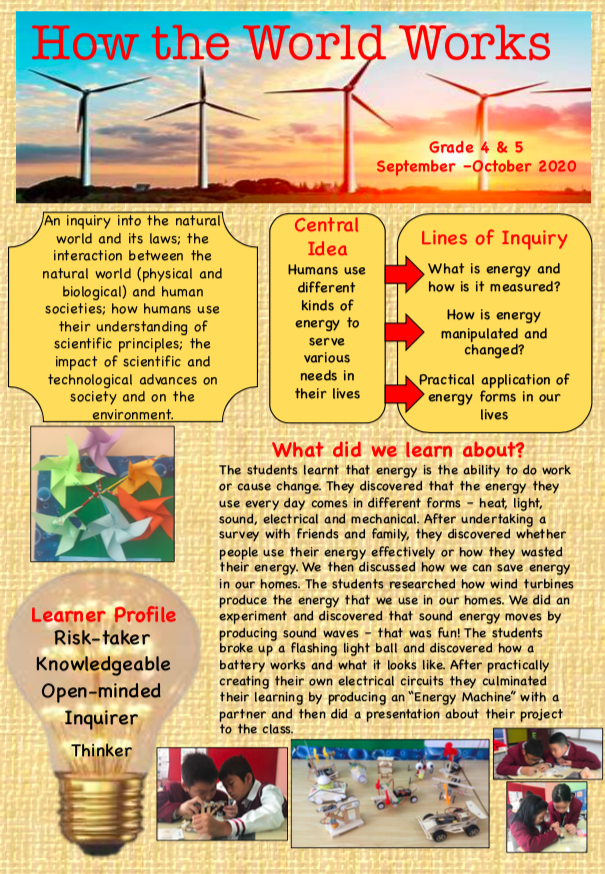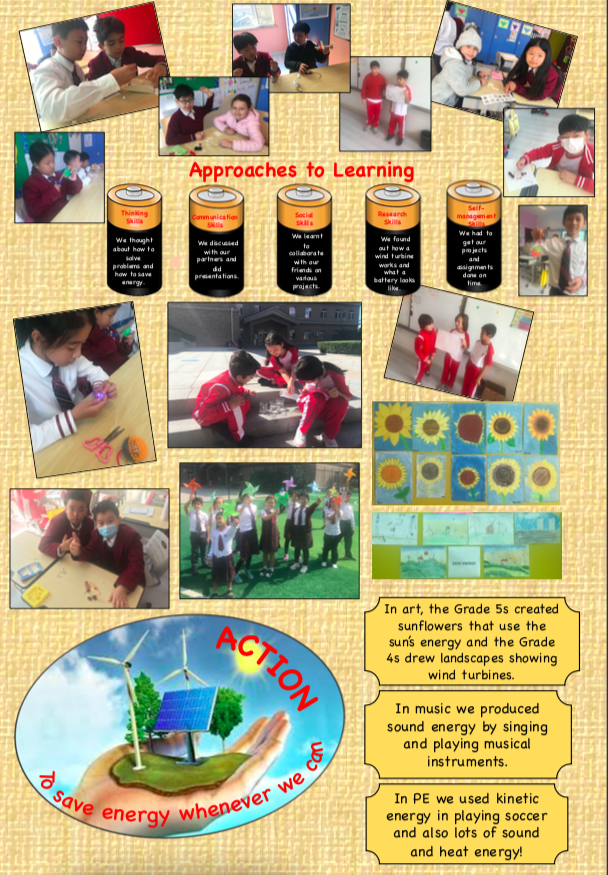At the end of every Unit of Inquiry, our PYP Homeroom Teachers elaborate a Newsletter which is sent home with our students. This time, they came together with the Progress Report Cards. But before showing the first Unit Newsletters of all our grades, it would be good to give a brief explanation of what is included in them.
As IB states, a fluent communication is important for “engaging with, and building relationships in, the school community”. This is a way to ensure that interactions and communications are open and frequent and the written curriculum is available to the different stakeholders of our CISS School Community.
Most of the essential elements of the written curriculum, reflected in our Programme of Inquiry, are shown in our End of the Unit Newsletters:
Transdisciplinary Themes
The most significant and distinctive feature of the IB Primary Years Programme is the six Transdisciplinary Themes
These themes are about issues that are meaningful and important to all of us. The programme offers a balance between learning about or through the subject areas, and learning beyond them. The six themes of global significance create a transdisciplinary framework that allows students to “step up” beyond the confines of learning within subject areas.
Students have six units inquiring into each of the Transdisciplinary Themes in every year of the program. Through these units of inquiry students develop skills, attitudes and knowledge and take action to improve their own community or in the wider global context. Through these themes, students gain knowledge in six principal domains:
- Who we are
- Where we are in place and time
- How we express ourselves
- How the world works
- How we organise ourselves
- Sharing the planet
Key Concepts (Knowledge)
The concepts that support all of these themes are
- Form: What is it like?
- Function: How does it work?
- Causation: Why is it like it is?
- Change: How is it changing?
- Connection: How is it connected to other things?
- Perspective: What are the points of view?
- Responsibility: What is our responsibility?
Learner Profiles (Attitudes)
In our classrooms you will see a set of words describing personality attributes. These words represent what is called the IB learner profile. This profile represents an International Baccalaureate graduating student. It is a common set of values, developed in all three IB programmes (PYP, MYP, DP) that transcend international boundaries and help develop internationally minded people. IB learners strive to become:
- Inquirers: I am curious and enjoy learning. I try to learn and discover new things.
- Knowledgeable: I learn about many things and remember what I have learnt. I use what I know to solve problems.
- Thinkers: I think carefully and show initiative. I make good decisions and I am a problem solver.
- Communicators: I share my ideas and feelings in many ways and in more than one language. I listen well.
- Principled: I tell the truth and I am fair. I share and play well with others. I do what is right.
- Open-minded: I listen to other people and respect their ideas and beliefs.
- Caring: I care about people, plants. animals and the Earth. I help others and I look after the environment.
- Risk-takers: I have confidence to try new things. I stand up for what I believe in.
- Balanced: I look after my mind and my body. I try to stay healthy and happy.
- Reflective: I think about my work and actions. I know when I have done well and when I need to improve and change.
Approaches to Learning (Skills)
Inside their learning throughout the Programme of Inquiry, students acquire and apply a set of transdisciplinary skills:
- Social skills: Accepting responsibility, respecting others, cooperating, resolving conflict, group-decision making, adopting a variety of group roles.
- Communication skills: Listening, speaking, reading, writing, viewing, presenting, non-verbal communication.
- Thinking skills: Acquisition of knowledge, comprehension, application, analysis, synthesis, evaluation, dialectical thought and metacognition.
- Research skills: Formulating questions, observing, planning collecting, organizing and interpreting data and presenting research findings.
- Self-management skills: Gross motor skills, fine motor skills, spatial awareness, organization, time management, safety, healthy life style, codes of behavior and informed choices.
In Grade 1, “Artefacts can help us understand people’s history” was the central idea of the Unit of Inquiry framed in the Transdisciplinary Theme “Where we are in place and time”.
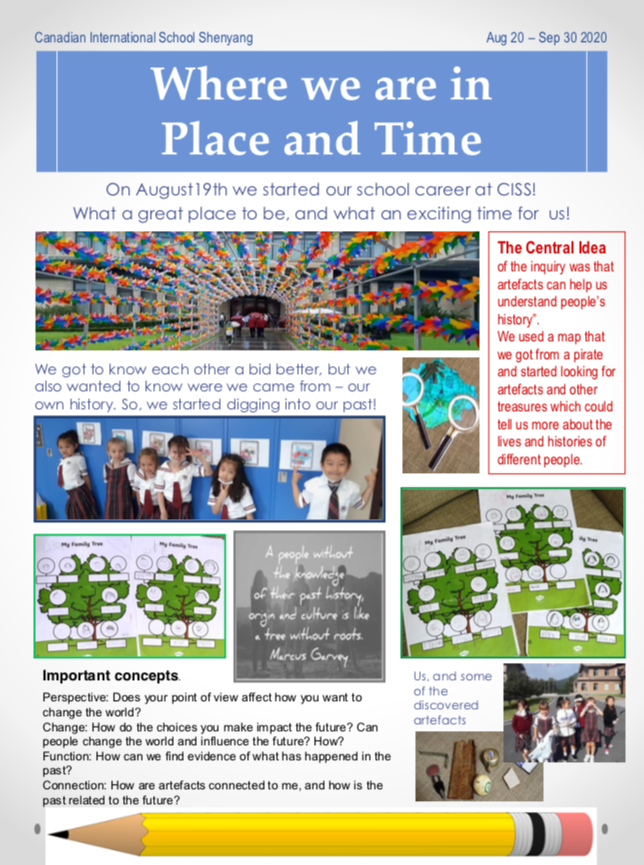
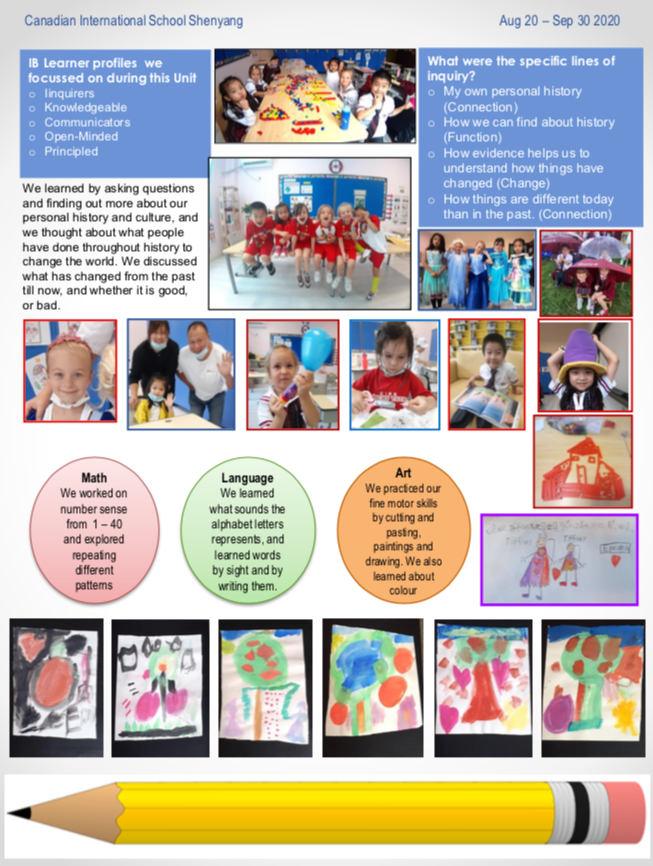
In Grade 2, “The choices we make affect our health and well-being.” was the central idea of the Unit of Inquiry framed in the Transdisciplinary Theme “Who we are”.
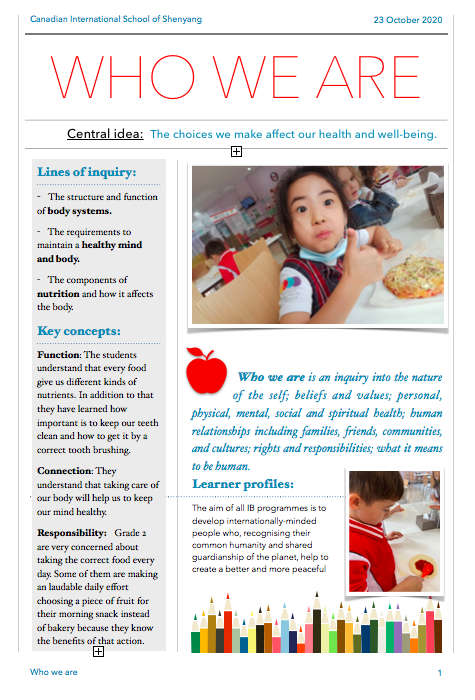
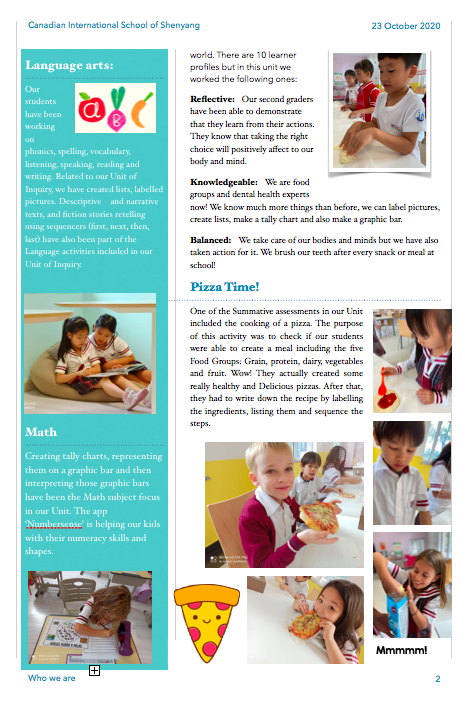
In Grade 3, “People nurture personal and social values to become productive and responsible citizens in society” was the central idea of the Unit of Inquiry framed in the Transdisciplinary Theme “Who we are”.

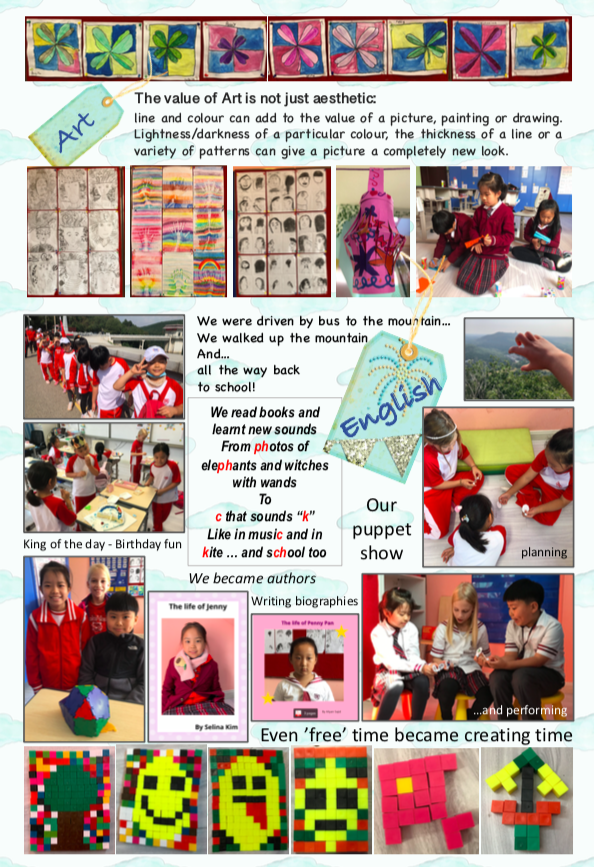
In Grades 4 and 5, “Humans use different kinds of energy to serve various needs in their lives” was the central idea of the Unit of Inquiry framed in the Transdisciplinary Theme “How the world works”.
